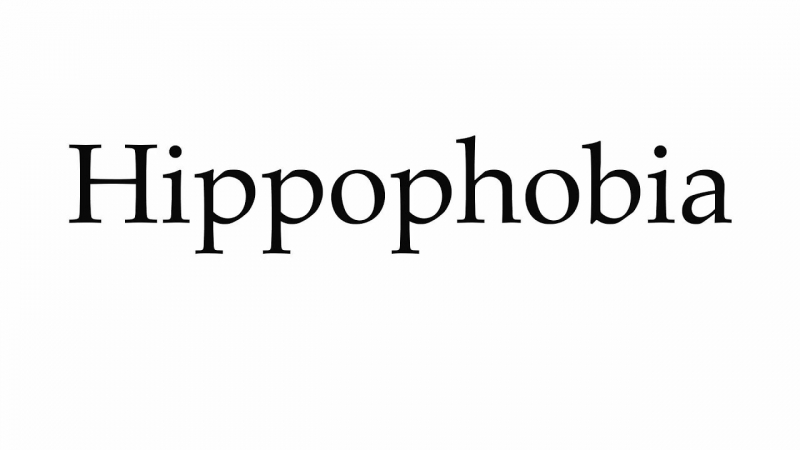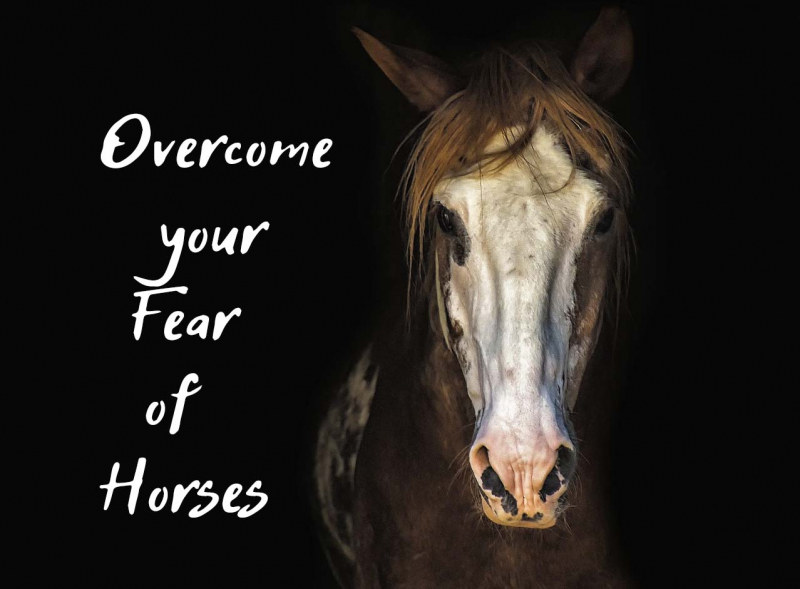Hippophobia

Horse phobia, also known as equinophobia or hippophobia, is a psychological fear of horses. Equinophobia is derived from the Greek word φόβoς (phóbos), meaning "fear" and the Latin word equus, meaning "horse". The name hippophobia is derived from the Greek word phóbos, with the prefix (hppos) taken from the Greek word for horse. Equinophobic people may be afraid of other hoofed animals, such as donkeys and mules. Freud's psychoanalytic study of Little Hans has an example of the fear.
This fear may have developed as a result of negative encounters with horses as a youngster. A fall from a horse can also cause equinophobia (An infamous example is when Christopher Reeve, an actor known for playing Superman, fell from a horse, broke his neck, and was paralyzed from the neck down for the rest of his life). In many situations, people begin to avoid horses out of fear, which progresses to a major phobia. A mere dread of the animal itself might also induce the phobia. The imposing height and weight of a horse, as well as its enormous teeth, may frighten some individuals, particularly youngsters. Fears may be exacerbated by negative media depictions of horses and stallions.
There are several therapy options accessible for persons suffering from it. Cognitive behavioral therapy is one type of therapy for persons who have phobias. It focuses on fears and the reasons for them. It attempts to alter and challenge the cognitive processes that underpin fear. It has been proven in studies to be useful in treating equinophobia. Convincing the patient that horses are not natural hazards to people and that humans have historically been predators of horses can be beneficial. Wild horses were an important source of food for people throughout the Paleolithic period. Despite a papal prohibition on horse meat in 732, many sections of Europe continued to consume it throughout the Middle Ages and into the modern day.
















